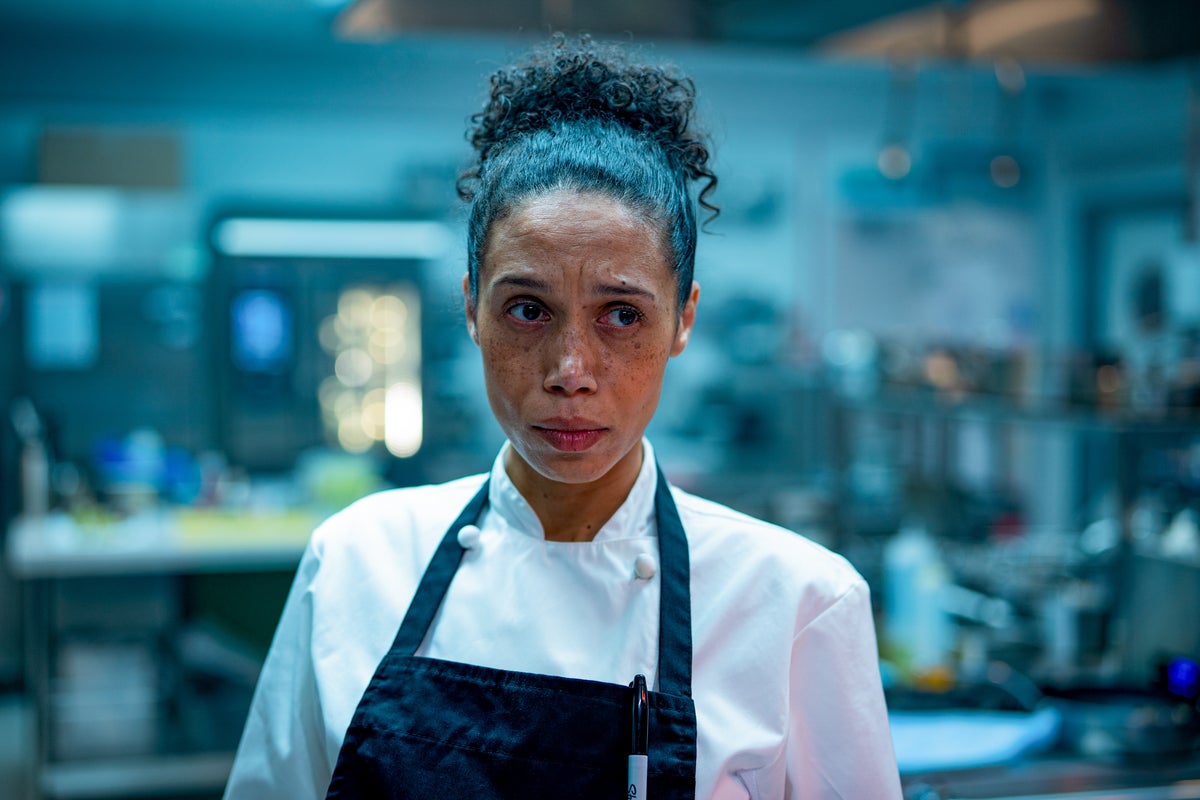
At the start of next year, I will be assuming a new role: head chef at Claridge’s. This is a dream achieved off the back of the most exhaustive culinary training in the world: watching television. I have total confidence in my ability to sear venison, mousse parsnips and brûlée crème, thanks to a menu of shows ranging from MasterChef and Hell’s Kitchen to Sweetbitter and The Bear. And now, as the final part of my – your, our – training, comes BBC One’s Boiling Point, a four-part thriller set in a trendy London kitchen.
Carly (Vinette Robinson) is the chef at Point North, a new haute cuisine joint serving Northern-inspired food (“classic Northern cuisine, moving it into London five-star environment”). They serve things like hogget, squab and lobscouse (which categorically does not contain lobster). Her brigade is a ragtag mob of big personalities: temperamental sous Freeman (Ray Panthaki), mouthy Chef de Partie Bolton (Shaun Fagan), fragile pastry chef Jamie (Stephen McMillan) and his guardian angel Emily (Hannah Walters). Then there’s the front of house team, led by manager Dean (Gary Lamont). Into this broiling turbulence, Johnny (Stephen Odubola), an inexperienced cook in need of a payday, is dropped like blanched potato into sizzling oil.
The series reunites a number of key creatives from the 2021 feature film Boiling Point, and, indeed, picks up the story in the aftermath of that calamitous evening. Stephen Graham’s Andy, the violent whirlwind at its centre, looms over the narrative. His protégé, Carly, has taken half his team over to her new restaurant, leaving him drinking tinnies and eating microwave meals. “She wants to talk to me, she knows where I am,” he hisses, bitterly. “Maybe if it weren’t for her, I’d still have my own f***ing restaurant.” But the deflation of Andy’s ego is the least of the show’s problems. Self-harm, alcoholism, racism, sexual harassment; the kitchen is a microcosm for the ills of society.
What is it about kitchens? They combine the minute-by-minute pressure cooker of high finance or politics or professional sport, but with an output that is, momentarily, transcendent. Art, on a plate, built with the intensity of engineers boring tunnels under cities. Where Boiling Point (the film) was shot in a single take, the camera travelling through the kitchen like a loose pigeon, Boiling Point (the series) maintains a frenetic energy, often with rapid cuts. Tonally and substantively, it is similar to Disney+’s The Bear. Both shows revel in the stress of restaurants (“It’s just a bit of dinner!” Carly’s mum tells her – but we know better), but where The Bear is gilded with comedy, Boiling Point is laced with trauma.
That can make it tough viewing. The sauce bubbles at such a frenzied simmer that occasionally the scales tip from refined to gloopy. But above all, the quality of the acting – from the stations of the kitchen to the bartenders and waitresses out front – saves Boiling Point from becoming a mess. The writing from Philip Barantini and James Cummings (who also co-wrote the film version) keeps proceedings on the right side of melodrama and sermonising, and cinematographer Matt Lewis retains the visual dynamism. It’s a knife-edge, but it works.
“It’s times like this you’ve got to separate the wheat from the chaff,” says Beth (Alice Feetham), who is now running Andy’s old haunt. The kitchen, ever the site of the sort of unenlightened work practices that would make a mobster blush, has become a new televisual battleground. But Boiling Point is undoubtedly in the “wheat” category. The sort of wheat you mill, mix with milk and butter, and layer delicious, caramelised apples on. The question is whether viewers have the appetite for yet another relentless kitchen drama. The answer? Yes, chef.







